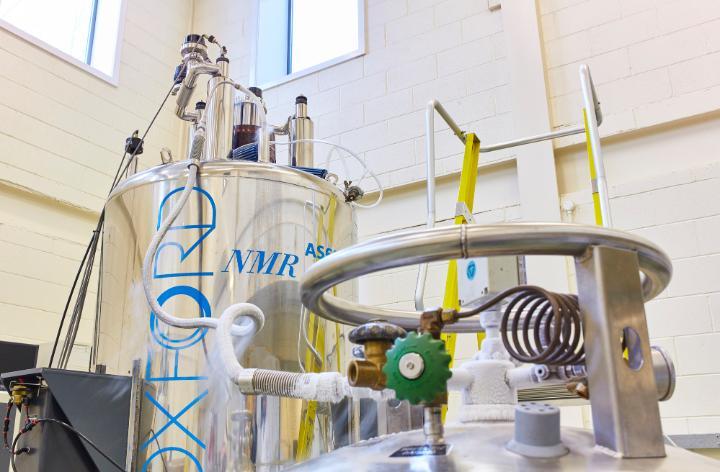Polymer research updated
Since our last article, Assistant Professor Dr Tom Swift from the School of Chemistry and Bioscience and colleagues have continued to work on research into chemical and polymer analytical capabilities that can be used to benefit local businesses. Including his work on Project CAYMAN detailed below, Tom has worked on more than 50 projects creating income of around £1.2million in consultancy fees, one such project being a collaboration with Trio Healthcare, manufacturers of stoma care solutions:
"They came with a product that was essentially an adhesive wafer about the size and shape of a CD with a hole in the centre, and said ‘we want to change the material properties. We want to make the material fundamentally softer’. They were wanting to go back to the factory stage to change the ingredients and come out with a better product."
Dr Tom Swift
That's the specialism that myself and the chemistry team can offer which complements what a company's engineering team does - we can go back to the raw ingredients to make sure the chemistry of this product is as good as it can be.
"I'd say Trio’s original recipe was 90% of the way there. We consulted and tested some additives, trialled four or five different ingredients and highlighted those that we thought were beneficial. They took our advice, reformulated and patented their product and it’s since been trademarked and launched to market with positive reviews."
Since the work, a paper about the collaboration has been published in the British Journal of Nursing and Dr Swift was invited to the UK Association of Stoma Care Nurses Annual Conference alongside Trio Healthcare. He was asked to present his research, the product’s innovations and how it compares to, and improves upon, similar products in the market. This is an example of the ongoing positive relationship between Trio Healthcare and the University, which is continuing through further testing of new products.
The success of this project was in part due to the expertise across the University, in this case calling upon the knowledge of the Centre for Skin Sciences, but the team also works closely with the Centre for Polymer Micro and Nano Technology and others to share knowledge and offer the best services to business partners.
Lots of the equipment used is housed in the facility known as Project CAYMAN (Chemistry Assets for Yorkshire Manufacturing) which through grants from the European Regional Development Fund can offer local businesses access to the range of very powerful analytical equipment with no upfront costs. The facilities include the ability to analyse the chemical properties of materials through nuclear magnetic resonance, gas chromatography, dynamic scanning calorimetry and thermo-gravimetric analysis at levels far beyond the capabilities of most organisations. The University of Bradford can offer consultants who are experts in these fields to advise on the best processes for each required task.

Some of the analytical equipment used in Project CAYMAN.
Dr Swift gives an example of the range of beneficial applications for the analytical services:
"I've been involved on a project with a colleague on crystallization; there's two main audiences for that project, pharmaceuticals and the cement industry. In terms of pharmaceutical healthcare, the concern from the client is around regulations, so we can give them confidence that their product doesn’t contain any harmful ingredients. With cement, the work we do can give companies the power to speed up or slow down how quickly cement dries. When building structures using cement, there’s massive time pressures and the huge potential for waste, so having more control over the process can literally save billions across the industry. These very different outcomes both have the same essential chemical properties."
Elsewhere, we are also analysing the temperature properties of plastics for a project that has the potential to expand the capabilities of recycling to use far more pre-used plastic in new products, which is great for the environment.
In the REF2021 submission, over 80% of outputs in Chemistry and Engineering were rated as Internationally Excellent or World Leading. See more details of our REF2021 results, including a selection of videos and case studies.
